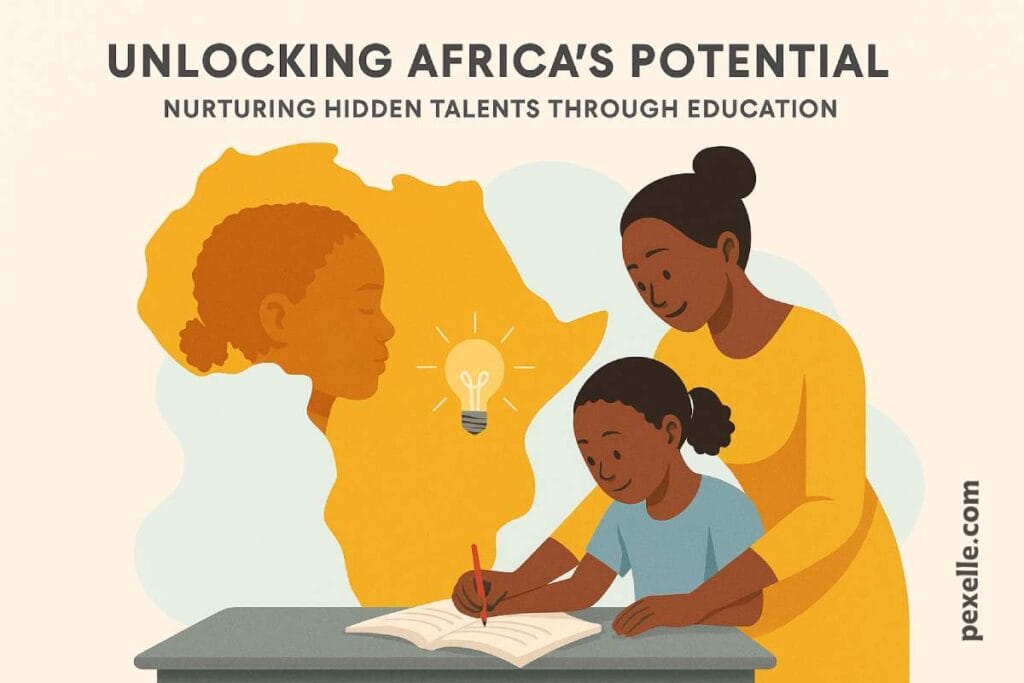Unlocking Africa’s Potential: Nurturing Hidden Talents Through Education

Introduction: Africa’s Untapped Human Capital
Africa is home to the youngest population in the world, with over 60% of its people under the age of 25. This demographic reality represents not just a challenge, but a vast reservoir of potential talent waiting to be discovered and nurtured. However, traditional education models often fail to address the continent’s diverse needs, leaving many gifted individuals without the means to fully realize their capabilities. The future of Africa’s growth depends on identifying these hidden talents and providing systems that foster creativity, innovation, and problem-solving skills.
Cultural Diversity as a Strength
One of Africa’s greatest strengths lies in its cultural and linguistic diversity. Each community carries unique forms of knowledge—ranging from indigenous sciences to artistic expression—that remain underutilized in formal education systems. By integrating local knowledge into curricula, African countries can create a more inclusive learning environment that validates cultural identity while enhancing global competitiveness. Such an approach not only preserves heritage but also enables students to see themselves as valuable contributors to innovation.
The Role of Technology and Digital Learning
Digital technologies offer unprecedented opportunities for Africa to accelerate talent development. With the rise of mobile internet, e-learning platforms, and AI-driven personalized education, students can gain access to world-class knowledge regardless of geographic location. Countries like Kenya, Nigeria, and Rwanda are already investing in digital education infrastructure, paving the way for a generation of tech-savvy innovators. Leveraging technology also helps to bridge the urban-rural education divide, giving children in remote areas the same chances to nurture their hidden potential.
Skills for the Future Economy
As global economies shift towards knowledge-based industries, Africa’s youth must be equipped with critical skills such as coding, data analysis, renewable energy engineering, and entrepreneurship. Many African students show natural creativity and problem-solving abilities, often demonstrated in informal settings like local innovations or grassroots businesses. Harnessing these skills through formal training, mentorship programs, and vocational education can prepare Africa’s workforce to contribute not only to local economies but also to global industries. Furthermore, initiatives such as pan-African talent accelerators and innovation hubs can help transform latent talent into market-ready expertise.
Overcoming Systemic Barriers
To fully unlock hidden talents, African nations must also address systemic challenges: underfunded schools, teacher shortages, gender inequality, and limited access to resources. Public-private partnerships can play a crucial role in building sustainable education systems that emphasize inclusivity. Special attention must also be given to identifying and supporting gifted students who might otherwise be overlooked due to poverty, disability, or marginalization. By ensuring equitable access to quality education, Africa can create an environment where hidden talents are not only discovered but celebrated.
Conclusion: A Continent of Possibilities
The potential of Africa’s youth is vast, but it requires visionary strategies to bring it to light. By rethinking education, embracing digital solutions, integrating cultural knowledge, and removing systemic barriers, African countries can transform their demographic advantage into a powerful engine of progress. Nurturing hidden talents is not just about individual success—it is about shaping Africa’s future as a hub of creativity, innovation, and sustainable development in the global economy.
Source : Medium.com




